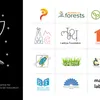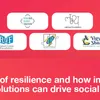As a young girl who was never afraid to dream, Hemakshi Meghani knew that she wanted to become a politician when she was in the fifth standard. When she shared her ambition with her parents, they humoured her while expecting her to change her mind and grow out of what they thought was a phase. They were right, except Hemakshi set out to groom future politicians rather than becoming one by establishing the Indian School of Democracy (ISD) with her co-founder Prakhar Bharatiya in 2018.
A nonprofit organisation, ISD offers short and long-term courses for candidates harbouring political ambitions and with the courage and imagination to make democracy work for every citizen.
New Delhi-based ISD was among the 16 non-profit organisations that participated in The/Nudge Incubator’s Cohort 7, where it helped these enterprises drive social change with impactful solutions. During the six-month programme, the incubator helped the participating enterprises with an innovation grant of Rs 15 lakh, connected them with illustrious mentors from diverse sectors and provided them with networking opportunities.
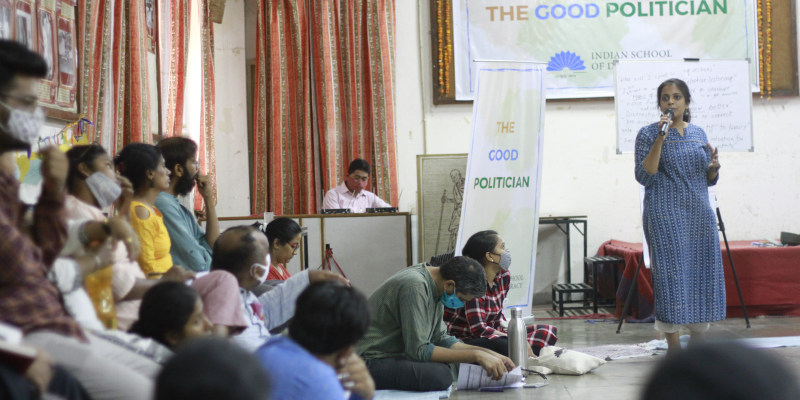
Image Courtesy of Indian School of Democracy(ISD)
The former Teach for India fellows say that their vision behind launching an organisation like ISD was to create an ecosystem where political leaders belonged to not just political families but also disadvantaged and marginalised communities, irrespective of their religion, caste or gender. “We also wanted to disabuse people of the notion that politics was dirty and something to keep away from. We hope to nurture principled leaders who can serve as role models for generations,” adds Prakhar.
Another of the Cohort 7’s incubatees, Gramhal, is driving impact in the agricultural sector with a digital platform that is empowering farmers with post-harvest services of storage, credit, market linkages and price intelligence. Its co-founders, Vikas Birhma and Simeen Kalim, were inspired by their experiences of living in families whose primary occupation was agriculture and the struggles they faced.
“Vikas grew up in a village in Haryana and his family faced a lot of difficulties while trying to make ends meet with the meagre income from a smallholding farm. Meanwhile, my father is a first-generation learner. While growing up, I saw most family members except my father struggle financially. Our experiences gave us a peek into the economic hardships that people living in India's villages, especially farmers, face,” says Simeen.
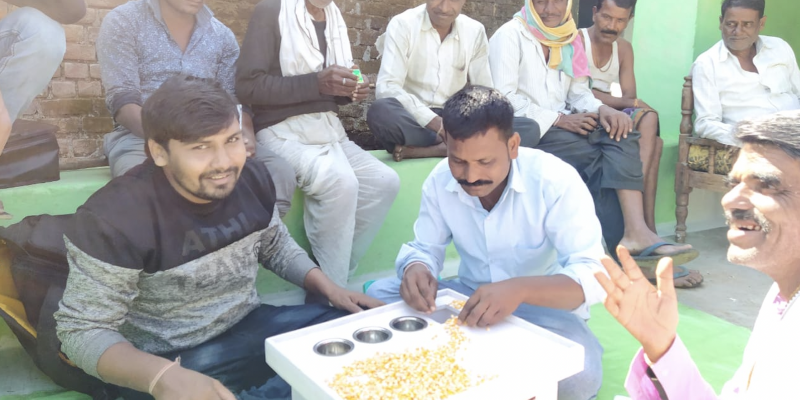
Image courtesy of Gramhal
Their inspiration soon paved the way for a unique business model that sought out to make farming profitable and sustainable for smallholder farmers. And, the rest as they say is history.
With an aim to onboard 1 million farmers over the next three years, Gramhal is working to enable marginal farmers to sell local harvests like amla, mahua and til profitably via their platform.
Nurturing a bright future with impactful solutions
These incubatees are building impactful solutions to address a diverse set of societal challenges which can help empower millions while setting a precedent for future social entrepreneurs. These organisations have carved a niche for themselves by negotiating their way through some tough challenges like the COVID-19 crisis.
Take the case of Krutika Ravishankar and Arti Dhar, the co-founders of Farmers for Forests (F4F), an organisation that works to shield the poor and underprivileged communities against the impact of climate change in India. The organisation had been operating for just four months when COVID-19 announced its entry.
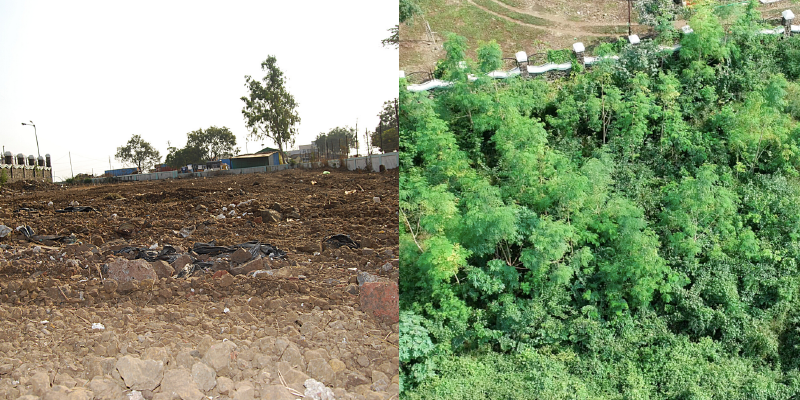
Image courtesy of Farmers for Forests(F4F)
When the lockdown was announced, the duo had to halt operations. "However, we decided to re-allocate our budget and provide cash relief to urban daily wage workers who lost their incomes due to the lockdown. Our work caught the attention of other organisations and soon donations started pouring in," says Arti.
F4F was able to find a silver lining in the dark cloud of the pandemic by starting conversations with donors, peers and supporters to explore opportunities. "While things are slowly going back to normal, albeit with masks and social distancing, we miss our hour-long conversations and meetings. It made for better relationship-building, but our team has done a great job in stakeholder engagement despite restrictions," adds Arti.
During the short time they’ve been operating, F4F has been instrumental in driving impact across the country. The team has helped turn over 30 acres of barren land into forests and generate 3,500 man-days of rural employment.
In Gramhal's case too, the team initially found it challenging to continue operations in the wake of the pandemic.
“As we struggled, we realised that Gramhal's work of connecting farmers and buyers via a digital platform had assumed a more relevant role during the pandemic. With closed mandis and a broken supply chain, farmers had no means to sell their produce. So, we buckled up and repurposed our resources to empower them,” explains Simeen.
To the team’s surprise, Gramhal’s work gained a lot of traction during the pandemic and they are now working with over 5,000 farmers.
Traversing through challenges with grit and determination
For most of these organisations, the journey so far hasn’t been an easy one. The lack of institutional support for non-profit organisations makes it all the more difficult for them to achieve their goals.
The/Nudge Incubator is among the initiatives launched in India that focus solely on non-profit enterprises and supports them in scaling and bringing their ideas to life.
F4F's Aman Dalmia believes that given how non-profit organisations help solve societal challenges with limited resources, they need more guidance and resource support. "This means providing a larger quantum of capital, tech support, strategic support, industry connections and most importantly, a space to innovate. The/Nudge Incubator is one of the few organisations in India that offers that kind of ecosystem support."
For MakerGhat's Azra Ismail and Aditya Vishwanath, who were also part of the Cohort 7, their mentor’s wealth of experience and constant encouragement has been transformative not just for their venture but also for them.
MakerGhat came into existence when Aditya was working as a researcher and volunteering as a tutor at a few low-income schools in Mumbai, while Azra was with women healthcare workers in Delhi.
"While working with these professionals and youths, we noticed their incredible drive and willingness to hustle. They didn't lack passion, enthusiasm or a willingness to learn. However, they didn't have a safe space to collaborate, innovate, access resources and experiment or fail without consequences," says Aditya, who’s currently studying at Stanford University.
In 2018, Azra and Aditya managed a small corpus and rented a small office space in Mumbai to encourage those belonging to underserved communities to think of new ideas, create and build.
"Our job was to merely help set up a space, raise adequate funds for it, create a bare-bones curriculum, and then get out of the way. Inspired by this journey, we realised the need for a broader movement, which is what we are focused on as an organisation."
“The programme helped us build organisational capacity, create robust programme outcomes, and inspire the youth at large. The mostly unrestricted nature of the programme gave us an opportunity to focus on core capacity building at an early stage,” says Azra. She is also a research assistant at Georgia Institute of Technology.
Enriching mentorships that create learners for life
One of the things that set The/Nudge Incubator apart from other accelerator programmes is its illustrious mentors that come from various sectors and have extensive experience in the non-profit sector.
Talking about how the mentors the team was paired with helped them refine their strategies, Prakhar says, “We are very aware that what we are trying to do is new and innovative, but we are who we are, because of our mentors. The journey started with our mentors believing in us, making us feel more confident, asking us the right questions and criticising us at the right moment.”
The ISD team’s thoughts are shared by Plio’s Aman Dalmia and Deepansh Mathur, who are working towards improving learning outcomes by making online education more interactive and personalised.
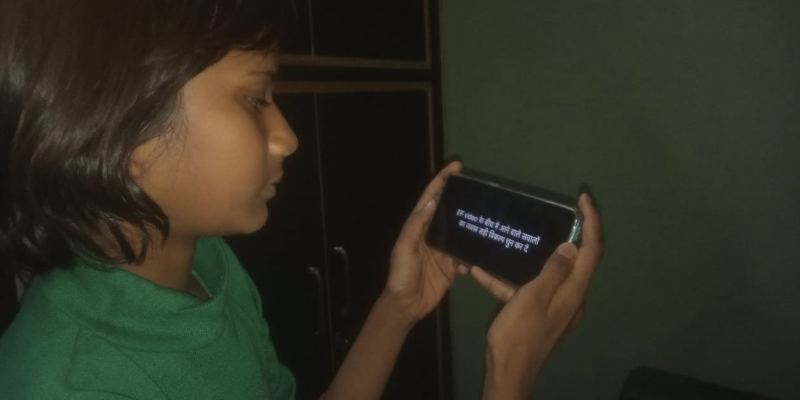
Image courtesy of Plio
“We found the diverse set of talks organised by The Nudge/Incubator very insightful. Plus, we found some genuine friends in other incubatees. The mentorship sessions were a huge help. We also connected with several people and organisations who can provide us valuable feedback,” says Aman.
Plio converts passive videos into active learning elements by overlaying questions throughout the video. The solution helps students to get immediate feedback, while enabling teachers to get a better understanding about each student's capabilities.
Plio's journey can be traced back to its co-founders' personal experiences of living in middle-class families and pinching pennies. The two met in college and after a successful stint in the IT industry, Aman and Deepansh set out to try their hand in the non-profit sector.
"We started volunteering our technical skills at a non-profit organisation which was working to ensure equal access to education in India. The organisation was helping over 8 lakh students with solutions that leveraged platforms like WhatsApp, YouTube and Google forms. However, we found that the engagement level on their videos was very low and the organisation was unable to understand how effective the videos were," he adds.
The duo got together to build an open-source tool to convert passive videos into interactive lessons and collect actionable insights on how students are learning. "We recorded more than five times the increase in completion rates for videos as compared to YouTube. Our goal is to empower creators to make video-based learning more enjoyable," says Aman Dalmia.
The two feel that The/Nudge Incubator can help budding entrepreneurs overcome several challenges that they might encounter early on in their journey. "As a new entrepreneur, it can be hard to understand all business functions that one needs to think about, given how each of them have a role to play at every stage of a company. The/Nudge Incubator does a great job of helping aspiring entrepreneurs with that," explains Aman.
Supported by The/Nudge Incubator, these organisations are all set to discover new avenues of societal progress. The/Nudge Incubator’s Cohort 7 was supported by Mphasis F1 Foundation, CGI Inc., Facebook Pragati and the Omidyar Network India.
The Nudge/Incubator is also inviting applications for Cohort 8. If you are an early-stage non-profit organisation that’s solving problems affecting the economically disadvantaged and vulnerable groups, click here to apply now.
Link : https://yourstory.com/2021/09/meet-social-entrepreneurs-reshaping-ground-realities-drive-change
Author :- Team YS ( )
September 17, 2021 at 12:29PM
YourStory

